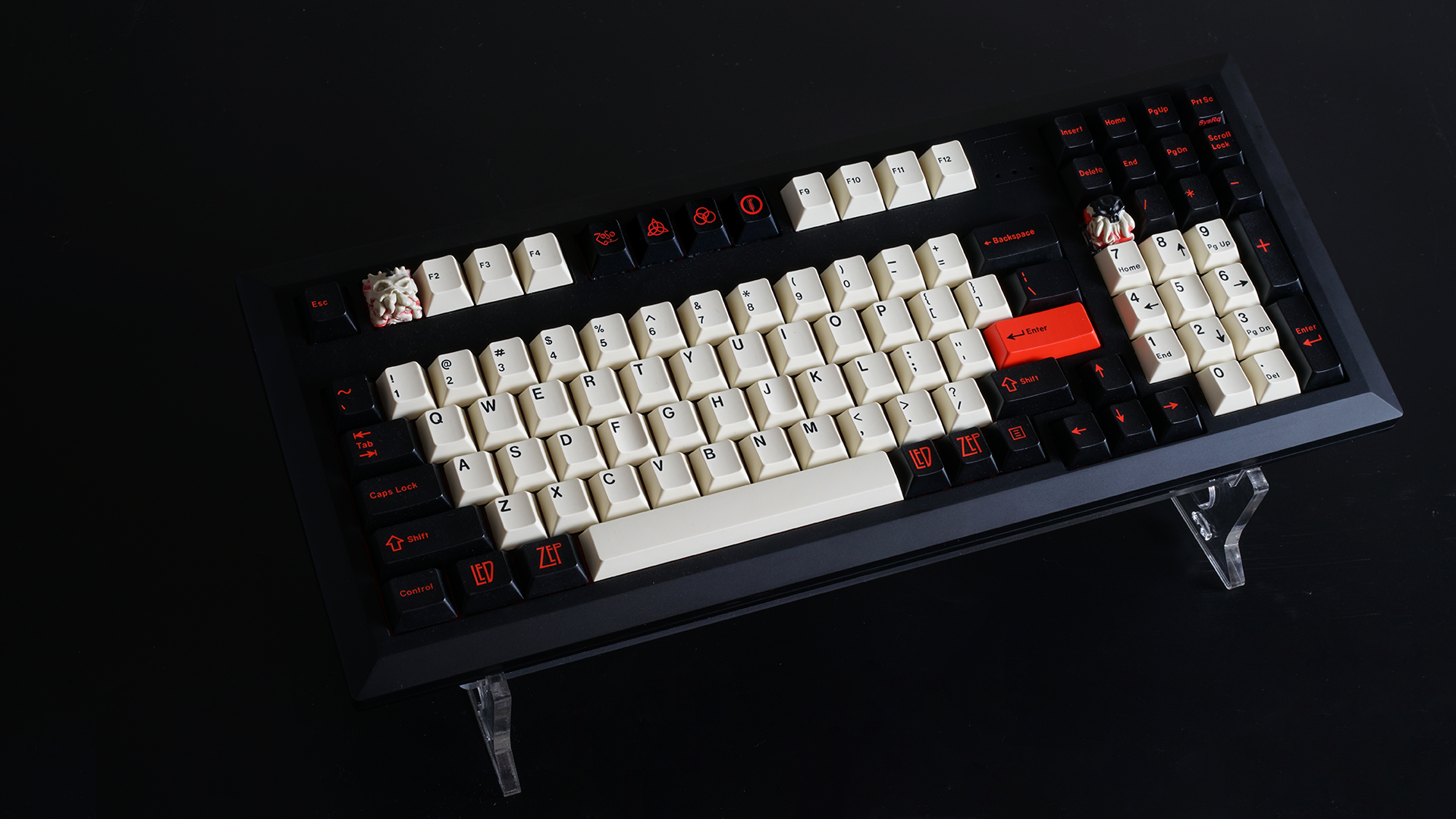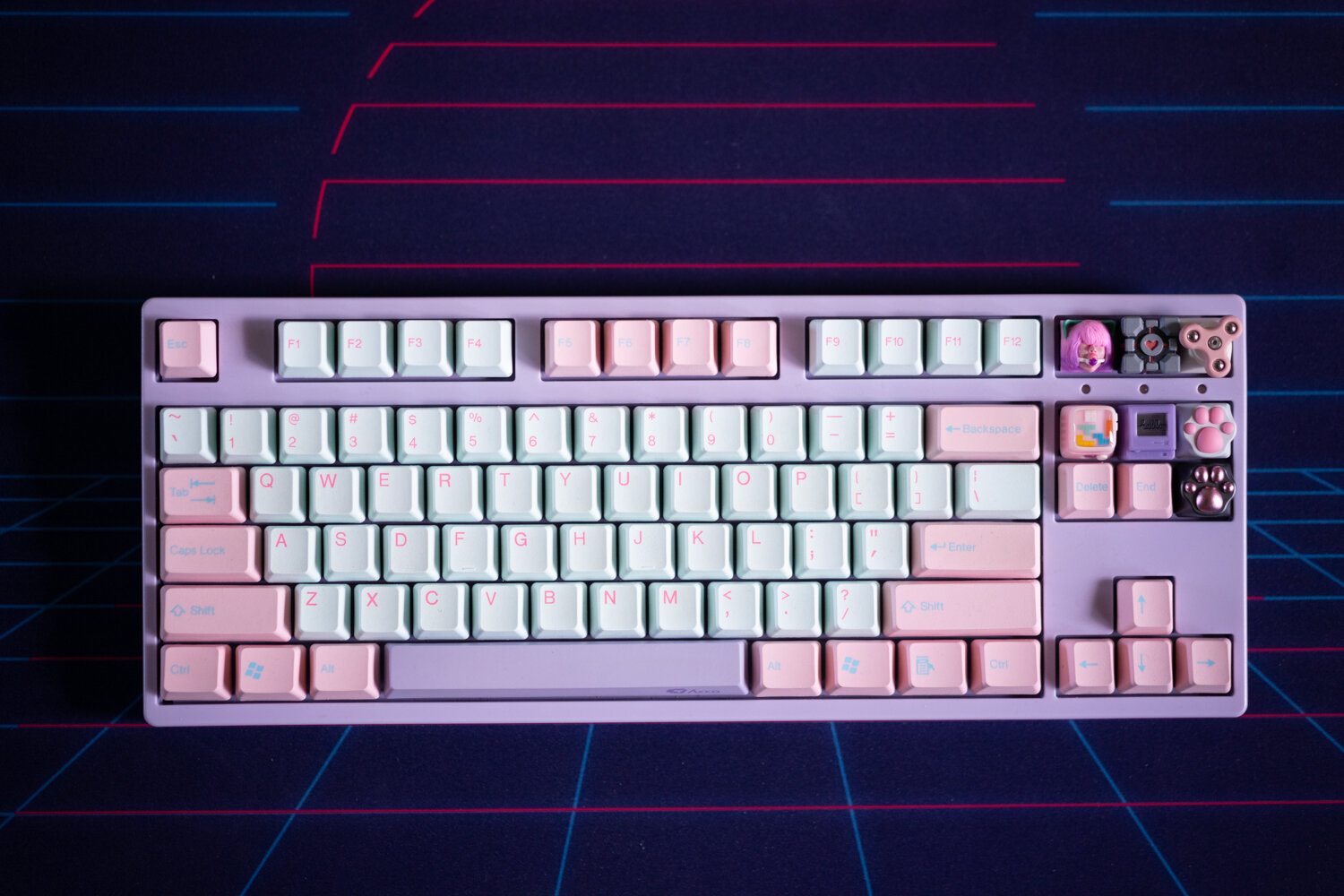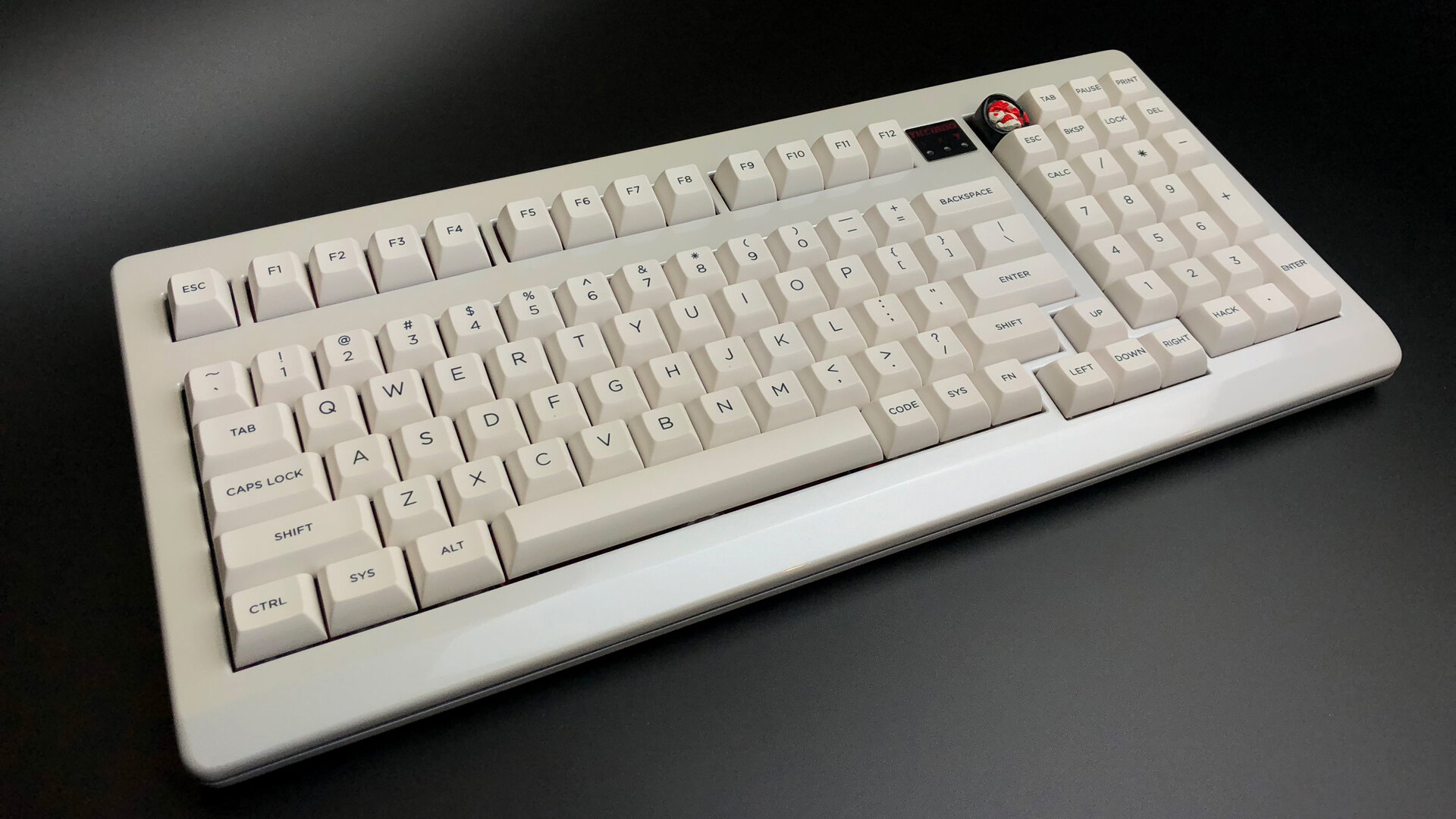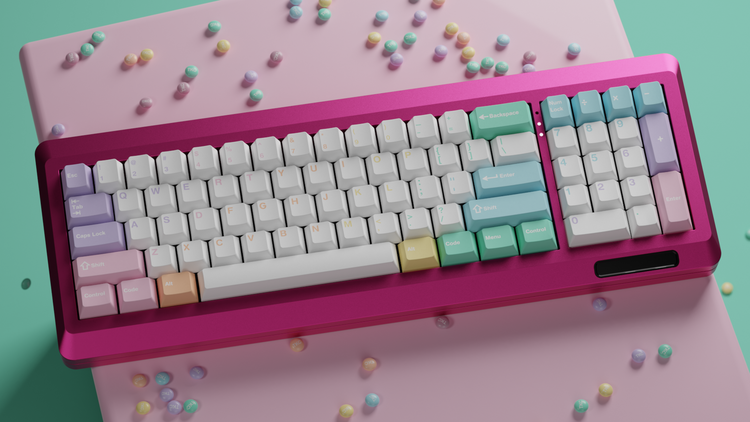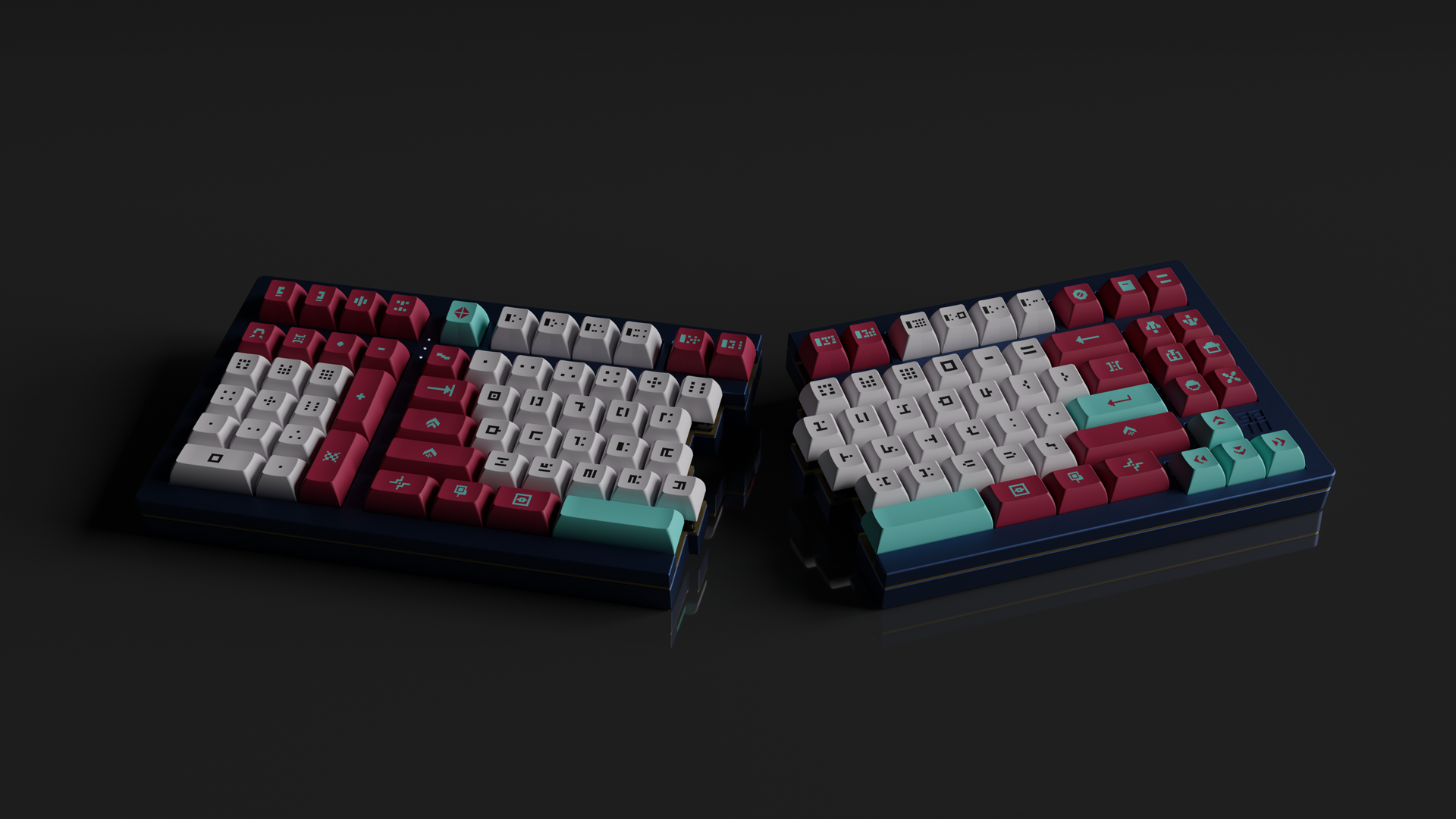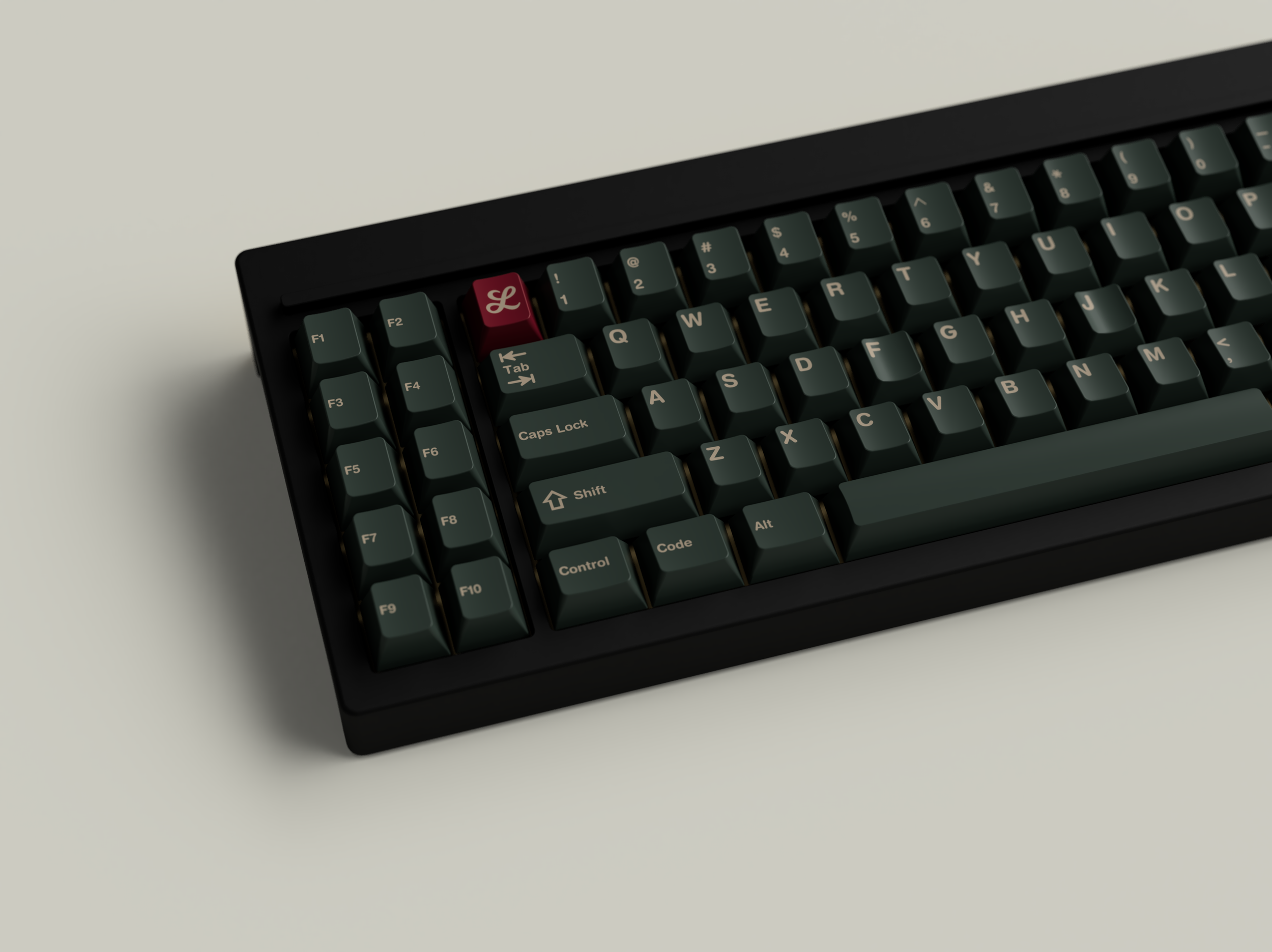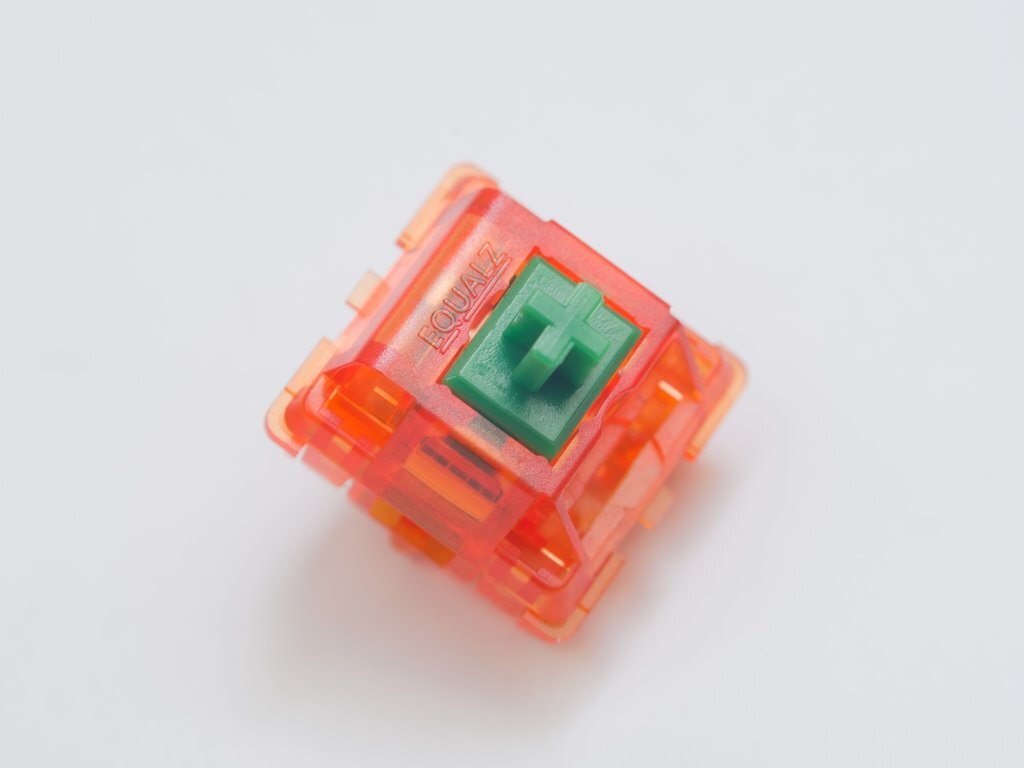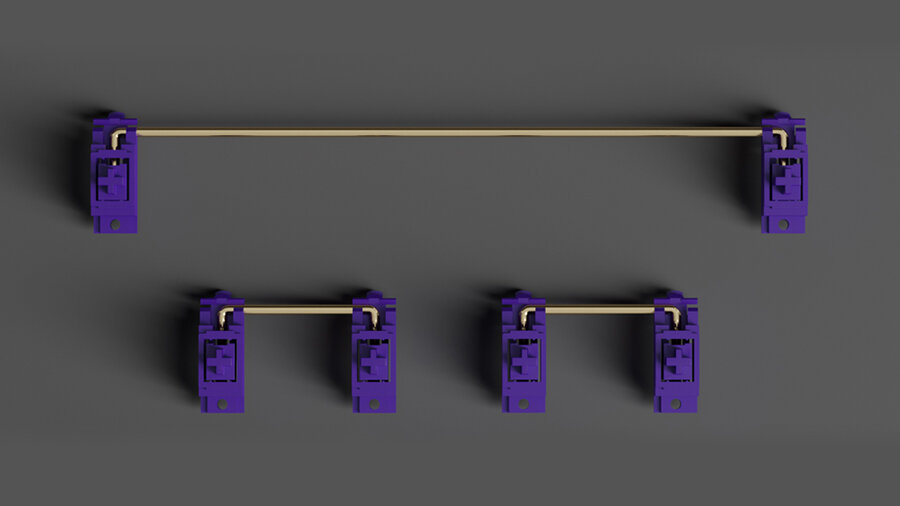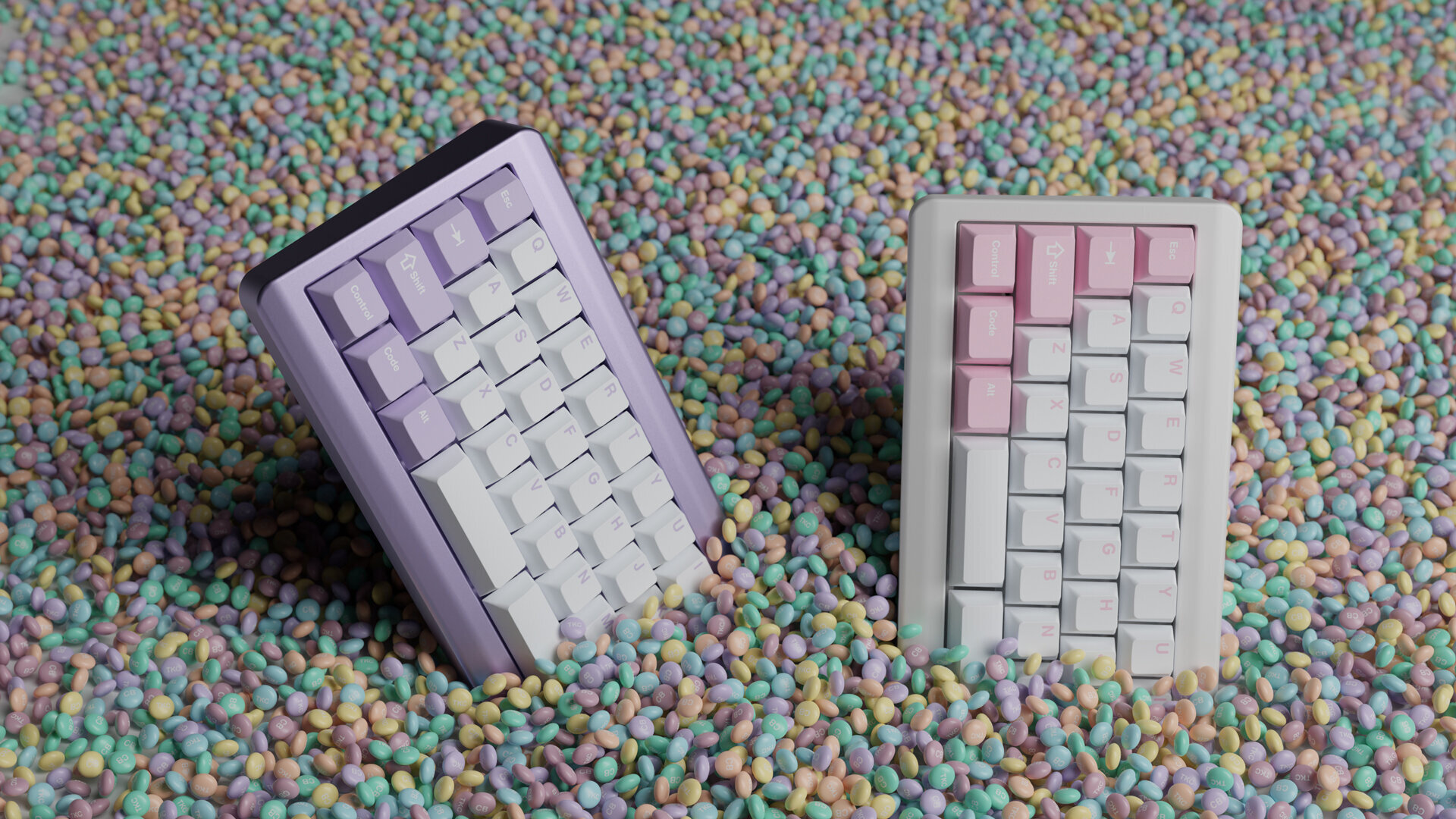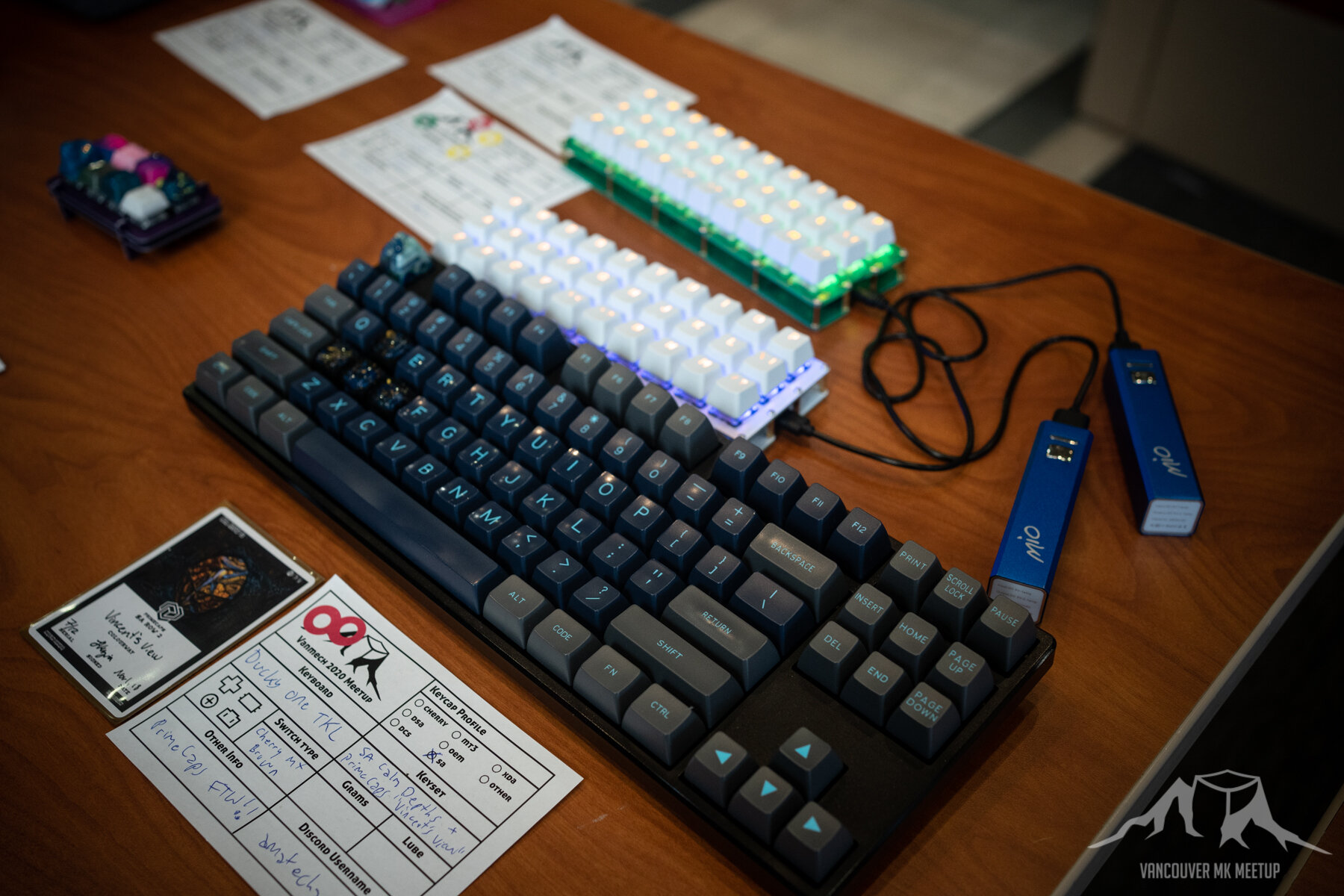Intro to Mechanical Keyboards
Syllabus
What is a mechanical keyboard?
Why do people like them? — Customization and benefits
An intro to the keyboard community
Further Reading
What is a mechanical keyboard?
A mechanical keyboard is a typing device that uses mechanical switches to register key presses. You may have used one in decades past and remember it as a loud clicky keyboard, or more recently on popular gaming keyboards.
Mechanical switches underneath keycaps. Keycaps are Infinikey Sanctuary Rebirth and switches are Tangerine linear switches.
Today, most consumer keyboards and laptops use a “membrane” that uses a linked pressure pad to register keypresses, rather than individual switches. In this course, we’ll be looking at why a growing global community is moving away from membranes to bigger and better options in mechanical keebs.
The parts that make up a mechanical keyboard are, broadly speaking:
Keyboard — case, PCB (printed circuit board), and plate
Switches and Stabilizers
Cable
Each of these parts can be customized, chosen, and swapped out to personalize a premium typing device.
Some parts of the Portico keyboard, from left to right: the bottom case, silicone dampening mat, PCB, felt dampening mat, gasket-mounted plate, and top case.
Why do people like mechanical keyboards?
A “macropad,” which is a smaller board than your typical computer keyboard.
Mechanical keyboards come with both creative and technical benefits that help create a typing experience tailored just for you.
The beauty of keyboards is that nearly every part of it is customizable. You can change as much or as little of it as you want to meet your needs in feel and look.
Aesthetic and Creative Customizations
You can customize the parts and materials that make up a keyboard, which affect:
Sound Profile — keyboards have a reputation for being loud, but beyond that, there’s a wide range of sounds: from quiet to loud, hollow clacks to deep thocks, and so on.
How it feels — keyboards are something you touch and interact with. A pleasant tactile experience makes your keyboard a joy to type on all day long.
Aesthetics — keyboards come in all sorts of form factors, colors, and materials, and are complemented by even more choices in keyset colorways.
Technical Benefits
More accurate typing — each key is registered separately, with less chance that one key is mistakenly pressed over another.
Programmable keys and layers — since each key is registered separately on the PCB, you can assign any key as needed. You can even create additional layers with different assignments that you can switch to on the fly.
High-quality materials — these keyboards are made to last. Metal cases, PBT keycaps, and many more options that are above and beyond what you can typically get with an OEM membrane board.
Ergonomics — more choices in keyboard formats and even split 2-part keyboards add to a more robust and health-conscious experience.
Overall, the ability to create something bespoke for yourself and at a much higher overall quality makes mechanical keyboards worth looking into for your gaming, writing, and computer-oriented needs.
Keyboard Community
Besides the mainstream consumer options with gamer keyboards like Razer, mechanical keyboards are still a relatively tight-knit community. The hobby is unique in that much of the custom products available are crowdfunded as made-to-order products, rather than mass-produced as in-stock items at retailers. This means that products are often conceptualized and launched alongside ongoing community feedback and offered in a pre-order sale that can take more than half a year to fulfill.
Much of the community comes together on various Discord servers (like ours for The Key Company’s community!), Reddit, and the forum Geekhack.
Keyboard Gallery
Mechanical Keyboards 101 Courses
If you’re successfully convinced that mechanical keyboards are something you’d like to explore and potentially build yourself, you can get a better idea of each component in our 101 courses on Keyboards University.







